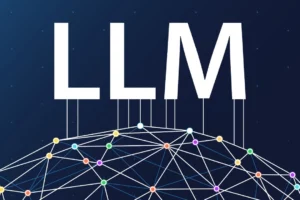Imagine a world where materials are tailored to our exact needs, from self-healing buildings that withstand natural disasters to ultra-lightweight yet super-strong airplanes. This visionary future is no longer science fiction, but a tangible reality emerging at the intersection of Artificial Intelligence (AI) and nanotechnology.
For decades, materials science has relied on trial-and-error methods to discover new materials with desired properties. This painstaking process is often slow, expensive, and limited by human intuition. However, AI is shaking the foundations of this field by unlocking its hidden potential.
Revolutionizing Discovery:
Imagine sifting through millions of potential material combinations instead of hundreds. AI algorithms do just that, leveraging machine learning to analyze vast databases of material properties and identify promising candidates for specific applications. They can:
- Predict material properties: By analyzing existing data, AI can accurately predict the strength, conductivity, or other characteristics of new materials before they are even synthesized.
- Accelerate material development: This predictive power significantly reduces the time and resources needed to bring new materials to market.
- Discover hidden relationships: AI can uncover subtle patterns and connections between seemingly unrelated materials, leading to unexpected breakthroughs.
Crafting Tailored Materials:
Think beyond generic steel or plastic. AI-powered material design allows for customization at the atomic level. Imagine:
- Materials with on-demand properties: Imagine smart windows that dynamically adjust their transparency based on lighting conditions, or prosthetics that adapt to their wearer’s movements.
- Self-healing materials: From buildings that repair cracks on their own to medical implants that resist infection, AI can design materials with built-in healing mechanisms.
- Sustainable materials: By identifying materials with lower environmental impact or optimizing production processes, AI can contribute to a greener future.

Optimizing Nanomanufacturing:
Nanotechnology deals with manipulating matter at the atomic and molecular level, creating materials with unique properties. Here, AI plays a crucial role in:
- Precise control of nanostructures: AI-powered systems can guide fabrication processes with unparalleled accuracy, ensuring the desired nano-architecture is achieved.
- Defect detection and correction: Early identification and correction of defects in nanomaterials are crucial for their performance. AI algorithms can analyze microscopic images and proactively address imperfections.
- Process optimization: From minimizing waste to maximizing efficiency, AI can optimize every step of the nanomanufacturing process, leading to faster, cheaper, and more sustainable production.
Challenges and Future Directions:
Despite its transformative potential, the AI revolution in materials science and nanotechnology faces challenges. These include:
- Data quality and accessibility: AI models rely on high-quality, comprehensive data, which is not always readily available.
- Interpretability and explainability: Understanding how AI models arrive at their conclusions is crucial for building trust and navigating ethical considerations.
- Collaboration and human-AI interaction: Successful integration of AI requires close collaboration between scientists, engineers, and AI experts.
However, the future holds immense promise. As AI capabilities continue to evolve, its impact on materials science and nanotechnology will deepen. We can expect even more groundbreaking discoveries, revolutionary materials, and advancements that shape our world in unimaginable ways.
















Add Comment